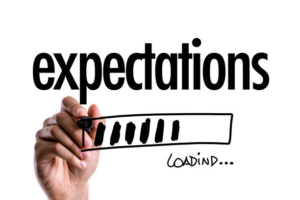10 Mistakes To Avoid When Selling Your Property
Selling your property is a veritable stress aggregator. At this stage, it dawns on you that your house is no longer your home. As soon as your property hits the market, you surrender your privacy and begin the process of letting go. Your castle is now a tourist attraction, and you’re sheltering in temporary accommodation. Strangers come and go, opening and closing your drawers, milling about, touching things. You must withstand hearing members of the general public commenting on your taste and disparaging aspects of your beloved sanctuary. On top of all this, what is likely your most valuable asset is at stake. The apprehensiveness takes a grip, and the list of worries multiplies. Whether you’re a first-time seller or you’ve tackled the market before, you’re at risk of making common mistakes. We take a look at the most oft-repeated blunders that a seller makes.
Becoming Emotional About Selling Your Property

Not only is there the financial aspect, which is huge, but also the less considered emotional reality. Understandably, people develop a strong attachment to their homes. A significant part of your life has been staged within the walls of your house, and memories linger. Selling your property is akin to parting with a family member; indeed, you are separating from the family nest. Your home has helped to define you for so long. Now, you must cast off the nostalgia and start viewing your home in a cold, financial context. It is important that you cease thinking of yourself as a homeowner and put on your business hat. Your habitat is now an asset that you must negotiate the transfer of.
Rejecting A Good Early Offer

Will you throw away a good homebuyer because you rejected a reasonable offer when selling your property? It happens all the time. Somewhere there’s a gigantic obelisk engraved with the names of good buyers tragically let go because of the sellers’ poor judgement. The first offer is sometimes the best, but sellers are often beset with the notion that things are just warming up. The expectation is that a flood of buyers is coming their way. As such, they think with a gambler’s logic rather than sensible business acumen. There’s a high chance the buyer has been studying property values in your area. They’ve familiarised themselves with each home in your area. As such, they’ve garnered a good idea of your home’s worth. This is something you should consider doing before bouncing on what may be the best offer you get.
Setting An Unrealistic Price

The perfect way to ensure your house sits on the market indefinitely is to set too high a price. Indeed, this is statistically the number one mistake you can make when selling your property. Right now, it’s a seller’s market, and this often inflates a seller’s expectations about what their property will fetch. If you do not investigate the market and ask for an unrealistic price, you’ll turn away buyers. Even if you drop the price later on, they’re unlikely to return. The best time to sell is when a property is fresh on the market. This is when the window of opportunity is wide open. It’s at this point that buyers are most interested. That window commonly stays open for 30 days. After that, buyers will wonder why your house hasn’t sold. They’ll begin to think something is wrong with your property. It’s a colossal boo-boo.
Spending Too Much On Improvements

Renovating your house before you sell it is a good idea. What is not so clever is when a seller goes over the top with improvements. Why add a pagoda if your neighbours don’t have one? What’s the sense in installing a granny flat when a family has kids that want to run around the yard? If you spend too much on renovations, you’ll find that you’ve caused your property value to rise. After all, you must recoup the money you’ve put into it, so you’re not about to drop the price. Yet, whatever flashy addition you’ve made may have the opposite effect of what you’ve intended. It can put the value of your house above other properties in your area and out of reach of buyers. This type of goof must be studiously avoided when selling your property.
Not Being Honest About Potential Problems

Overcapitalizing on renovations is one thing, but it has its evil twin in under-capitalizing. This venal sin resides in the same category as not disclosing potential problems. Buyers do not expect to move into a place where they’ll then have to borrow more to renovate. They want to move in, turn on the light switch, and know the building won’t collapse on their head. If you skimp on repairs, hoping to offload them onto the buyer, then you’re treating them like a chump. The technical term for this is deceit. It’s also arrogance. By not performing needed repairs, you’ll scare away buyers. Nobody wants a house with a leaky roof or holes punched into the walls. Fix those. Likewise, if you think you can band-aid the problem and lumber the buyer with it, think again. They’ll find out as sure as the sun will rise in the morning.
Not Preparing Your House For Sale

Sloppiness is not a good character trait, and in the housing market, you’ll be crucified. Worse than that, you’ll find it extremely difficult to sell your property. If you think you can just lay back and let it all hang out, then we’ve got news for you, hippy! This is a major flub. Your house has reached the staging phase, and leaving all your junk lying around means you can’t proceed. No buyer wants to come in and find your place filled with all your crap. They want to see it in its naked glory so they can imagine what they’ll do with it. Moreover, if you don’t clean up, then you’re asking to be avoided. A buyer has enough work ahead of them after they’ve bought the house. They have to move in and begin making a home for themselves. Don’t make inspecting your property a painful chore.
Poor Marketing Or Over-Marketing

These days, most of us are digital natives. We understand the importance of the online world and the role it occupies. Nobody much reads newspapers anymore, so placing an ad in the classifieds will get you noticed by about 1% of the buyers. Not that we’ve properly crunched the numbers, but it goes without saying. The first stop for buyers will be online listings. It’s here that you need to have a presence. But a casual photo won’t do. How can anyone appreciate the splendour of your lifestyle based on a half-arsed snap taken on a phone? Attention must be paid to every detail of advertising. Likewise, you need to mark your property properly with a sign. Carelessness with marketing will put you out of the market for long enough to break your spirit altogether. However, marketing must be targeted. Don’t go overboard either. Market wisely.
Being Inflexible

Blinkers are for horses, not for those selling their property. When a seller gets a price fixed in their mind and won’t budge, they’re being unrealistic. What’s more, they’re shutting themselves off from the vast majority of buyers who expect to haggle. A certain amount of flexibility is required when it comes to closing the sale. This must be understood before you place your property on the market. Inflexibility and ego are often intertwined. Let go of your ego and start thinking like a buyer. Sometimes the market will give you no choice. This is where the art of negotiation comes into being through offers and counter-offers. But flexibility is also a matter of making yourself available for inspections. You might be rigid in your routine, but buyers have their own lives too. You have to meet them halfway, or else you’ll mess up.
Not Reading The Fine Print

Don’t go through all the bother of sealing a deal and then failing to read the contract. God knows what the buyer’s agent has inserted in there. It could be anything. Sure, everything today comes with a 10,000-word contract. You can’t even click on your email without being assailed by an avalanche of fine print. There are disclaimers, updates, notifications, and user agreements. Most of that stuff you can ignore, but not a contract that involves the sale of your property. Once you’ve signed that piece of paper, you are stuck with its terms and conditions. There’ll be no use crying about it. You don’t want to find yourself wearing the cost of repairs or that your cherished Monet is now theirs. Always read through your contract with a solicitor.
Not Choosing The Perfect Agent

Many sellers do go it alone. Good luck to them. Have they screwed up? We’ll never know. Moreover, they’ll never know. Ironically, once they close the deal, they’ll be paying the buyer’s agent’s fee. But all of the above mistakes can be avoided by simply finding the right real estate agent for you. They can advise you on every area and handle the tough negotiations. A good real estate agent will know the area and its market. When you sit down with your agent, they will provide you with a realistic valuation of your property. Together, you will enter the market with a sensible, competitive price. Your marketing will be covered and tyre-kickers will be shown the door. Only the most sincere buyers will be entertained. We highly recommend choosing a real estate agent. Best of all, you’ll be buying peace of mind.
Conclusion
Selling your property is a time of strain and pressure. After all, you’re putting what is probably your greatest asset on the line. You want to get the best price you can and need things to go smoothly. In the end, everything is a game of chance. The best approach is to minimise the potential for heartbreaking errors. Being aware of your local market is a good start. Following what are, after all, commonsense admonitions is just basic good advice. However, when flying to Rome, few choose to pilot the plane. Firstly, you must learn to fly. It can be perilous if you try to fly before you’ve learned how. The same goes for selling your property. You need the services of a professional, qualified real estate agent. If you want help finding the perfect agent for you, contact us.




